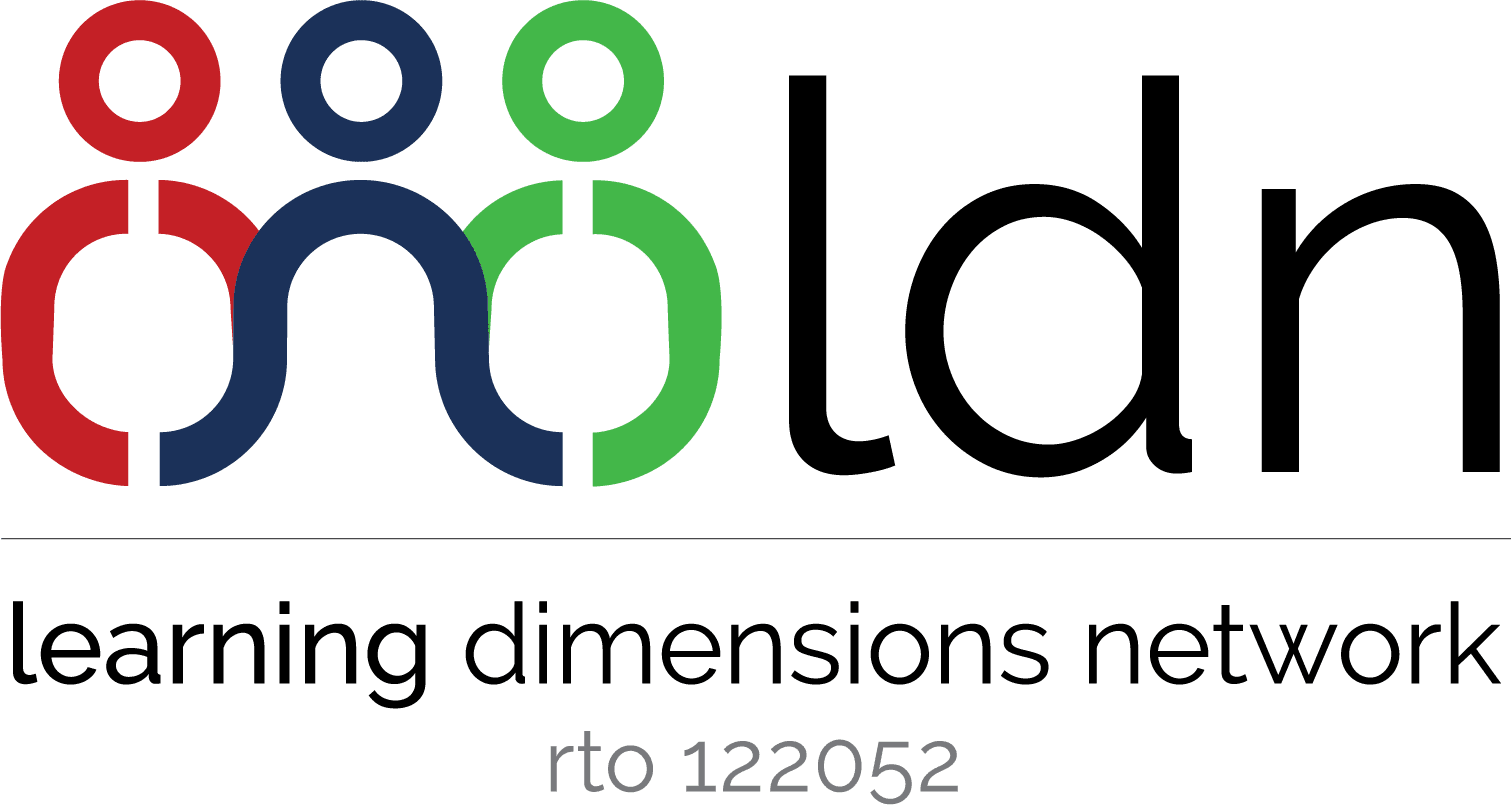Leadership Dimensions partner with organisations to build internal capacity, harness talent, build leadership skills and knowledge, and enhance organisational cultures and education.
Consulting areas include, cultural change, communication and interpersonal skills, career and team development, emotional intelligence, innovation and productivity, diversity and inclusion, presentation skills, stakeholder management and change fatigue.
Our leadership training courses for new, existing and emerging leaders is available in person or through our live, facilitator-led, online training courses delivered over Zoom or TEAMS.
Clients can select from short courses and programs that are either completely newly designed for your organisations unique needs, customised from our existing program suite, or off-the-shelf. We can deliver programs within Australia and internationally.
Leadership Dimensions consulting, design, and training programs are available for executives, frontline leaders and frontline staff.
Click on our leadership training topics to find out more about our key programs which include:
See the full course details here >>
Good communications have long been positioned as one of the fundamental skills of strong leaders. Quality interpersonal skills have been proven to build trust and robust relationships that underpin the development of teams and increase the influence of an individual both internally and externally. This two-day program studies these skills not as a ‘nice to have’ but rather as fundamental to the achievement of improved results through interactions with others. Increased productivity, delivery of efficiencies and reduced rework due to miscommunication are only some of the deliverables that this course seeks to achieve.
Participants will gain the skills and knowledge to be able to flex to the preferred communication styles of others more easily through deeper listening and more informed ‘reaction’ management, learn how to give effective feedback, constructively engage in conflict by listening to different perspectives and seeking to deal with others respectfully and confidently.
Leaders who can harness a team environment that is inclusive, where individuals know how they add value to the broader business and who are clear about expectations on their performance will achieve results far beyond those that do not. Team leadership requires an understanding of what individuals and the group need in different situations in order to feel confident, competent and to continue to build skills with the evolving workplace.
Leaders and managers are responsible for their team’s performance which in turn contributes to the overall performance of the organisation. It is important for the leader/manager to not only communicate clear standards of performance but also to take corrective action when behaviours are not aligned to these standards. In this program, we discuss what performance management is, the leader’s/manager’s role in achieving high performance, and why managing performance is vital to long-term success. The program also looks at the key stages of team development and how to move the team from early relationship development through to an aligned focus on goals and collaborative workflow as well as focusing on planning and prioritisation in order to create efficiencies, reduce rework and optimise individual performance.
Leaders who can harness an inclusive team environment, where individuals know how they add value to the broader business and who are clear about expectations on their performance will achieve results far beyond those that do not.
Team leadership requires an understanding of what individuals and the group need in different situations in order to feel confident, and competent and to continue to build skills in the evolving workplace.
Designed both for managers of intact teams, project teams and for team members working in a matrixed organisation, this program outlines the key stages of team development and how to move the team from early relationship development through to an aligned focuses on goals and collaborative workflow.
Leaders are required to think quickly, innovate and make decisions in a fast-paced environment. Participants discover how to adapt their leadership style to successfully solve the many problems leaders face on a day-to-day basis to deliver on robust outcomes in complex work environments while juggling conflicting priorities.
Participants will learn over the two days how to apply critical thinking to innovate and continuously improve, while confidently understanding how to manage projects and plans in an ever-changing professional environment. Through these short courses, participants will understand how to coordinate business operational plans, discover how to undertake project work and achieve outcomes and study ways to apply critical thinking to work practices.
Embracing difference and creating a culture of embracing and valuing diversity and inclusion is a priority, and something staff deserve. However, it is a journey. This program is designed to educate on commitment to diversity and what is expected at a behavioural level. The social-cultural changes seen in society over the past 10 years also mean we need to shift how we see diversity and inclusion and, importantly, how we behave.
Within this program, we explore what diversity and inclusion means and includes, identify your own beliefs and attitudes in relation to diversity and inclusion in various areas, understand the personal and business benefits of diversity and inclusion, determine the internal and external barriers that prevent inclusion in the workplace and learn what to do when the barrier presents itself, study how to embed diversity into plans and day to day operations and discover how to support the development of a diverse workforce.
Contact us about this program here >>
Change is constant. Whether it be restructures, consolidation of businesses, redundancies, new systems, or processes etc., what doesn’t change is that leaders need to manage and communicate the various changes in a fast-paced environment while ensuring the productivity and morale of teams stays intact.
Yet what is change? How do you manage your own reactions? How do you facilitate the implementation of change when you are not in control of it? What can you do when you and your team have change fatigue as it is relentless. These are all questions addressed in this program.
Contact us about this program here >>
Whether your job requires you to create contracts, bids, reports, or presentations, communicating through the written word communicating in writing is an important skill that increasingly is becoming essential.
Organisations have an expectation of leaders to excel in communication – whether it be written, verbal body language or tone. In this program we look at communication in terms of conveying your message in writing. Whether you need to present information upon which key decisions are made, or you are informing an audience of a particular subject matter, if your job role requires you to communicate a message in writing beyond emails, this program is designed to provide the skills and knowledge to undertake this effectively.
Emotional intelligence (EQ) is the ability to regulate your own emotions and identify emotion in others. People with high EQ helps build relationships, reduce team and individual stress and defuse conflict which ultimately increases team productivity and staff retention
Focussing on the pillars that underpin a high EQ participants will learn how to be more self-aware to increase self-management skills and knowledge. Participants will also learn how to build better workplace relationships that result in greater trust, rapport and respect – all critical skills needed in today’s successful leaders.
There is no doubt that finding, recruiting, and engaging new team members is a challenge. A market competing for employees and a significant shift of attitude towards work during Covid has added more complexity for Managers to ensure the recruiting through to onboarding process is highly professional and focused on the candidate.
This program focuses on understanding the direct link between our approach and actions and how this represents our employer brand, the importance of a structured, professional recruitment and onboarding process, delivering a recruiting and onboarding process that aligns with ethical and legislative standards, ensuring process transparently reflects the duties of the role and the culture of the organisation, the importance of supporting the candidate through the process, the impact of unconscious bias on the recruiting and onboarding process and strategies to reduce the impact and implementing a structured onboarding process to ensure candidates transitions successfully into the business.
Ensuring new staff or contractors ‘live’ your leadership values, expectations and behaviour is critical to ensuring a healthy workplace culture. Leadership Dimensions’ short courses are designed for face-to-face and online inductions for projects, offices and organisations that not only focus on the ‘what’ is required, but also importantly expected behaviours, otherwise known as the ‘how’ in order to increase staff retention, increase the speed of productivity from new hires and enhance organisational cultures.
Often organisations need to change procedures and policies which require different behaviours from staff members and contractors. Emailing out a new procedure or policy will not guarantee it will be followed – quite the opposite.
Whether the change relate to bullying, harassment and discrimination, contractor management, or perhaps compliance to new slavery laws Leadership Dimensions specialises in creating a series of short, informative and engaging sessions for organisations who need to remove resistance, increase compliance and, ultimately change behaviour so necessary and needed procedures can be adhered to because staff ‘want to’ rather than ‘are told to’.
Designed for recently promoted supervisors or team leader or those wishing to undertake a developmental pathway, this program discusses and clarifies a frontline leader’s role when it comes to finance and management of staff from a professional HR perspective.
Outcomes include:
- Discover how to make effective HR ‘people decisions’
- Understand a supervisor’s role and what organisations expect from a supervisor
- Demystifying financial language and understanding how the role of a supervisor fits in the financial success of an organisation
- Discover the new behaviours needed when transitioning from a ‘teammate’ to a ‘supervisor’ of the same group
- Study role model behaviours you expect in others
- Explore how to respectfully communicate with congruence
Presenting to a group requires a different skill set to training people to develop skills and knowledge, which is different again from facilitating a group to achieve an outcome.
In this interactive and engaging program discover key presentation, training and facilitation skills needed to create engaging yet credible outcomes.
By enrolling in our courses, you can learn how to use technology and your voice and body to reinforce your message and create an impactful presentation. Discover how to keep a learner engaged during training and ensure content is understood and ultimately applied back in the workplace. Develop skills to facilitate people to think outside the square and deal with the uncertainty that facilitation of group processes can create.
This interactive, informative and enjoyable education program is designed for anyone required to convey a message in the workplace; whether to a group of 5 or a room of 500.
“I don’t have enough time.”
“What did you do in all that time.
“I am late!”
“You missed the deadline.”
“I need to be more organised.”
“I wish you could prioritise.”
Do any of these phrases sound familiar? Statements like these can create stress, frustration and impact workplace relationships, not to mention performance.
All these statements are linked to a critical skill needed in any workplace: time and priority management. However, these topics are generally not a topic taught in school yet when you get to work somehow you are just meant to know how to do it and apply it day in and day out. Our courses are here to bridge that gap.
The workplace is fast paced and dynamic. Effectively managing time and conflicting priorities and build capacity for managing stress are the outcomes of this engaging program.

